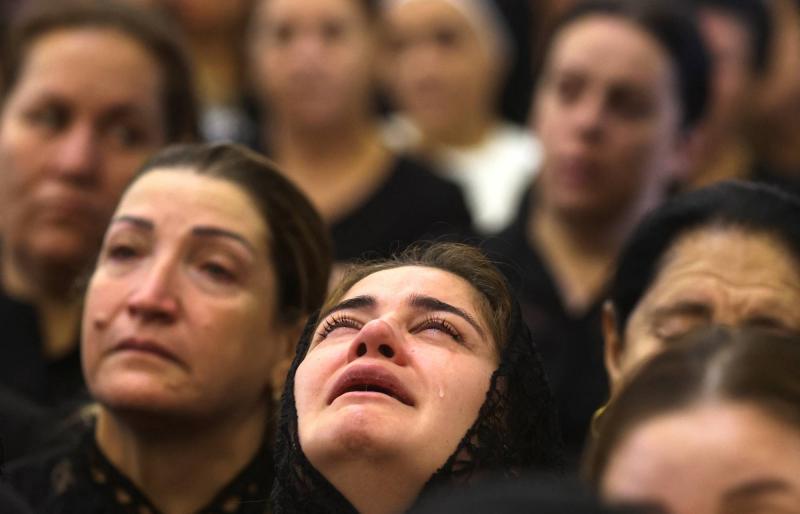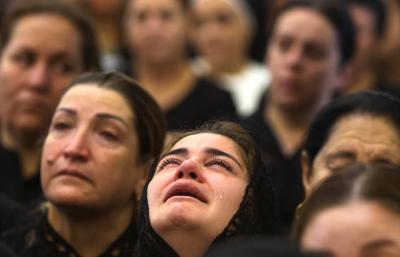Iraqi Christians, previously driven from their village by ISIS, are blaming two other enemies for a fire that took the lives of over 100 friends and relatives at a wedding this week: chronic political corruption and lax regulatory enforcement. After returning from years of fleeing during the war against armed militants in Iraq, the residents of Hamdaniya, who are rebuilding their lives in their hometown, stated that while the defeated militants failed to kill them, corruption succeeded.
Father Boutros Shitto said, "ISIS did not kill us; this disaster killed us," while speaking in a local church hall during the burial of mourners’ loved ones. Shitto lost his parents, two sisters, and two nephews in the fire that engulfed a crowded wedding hall in Hamdaniya, also known as Qaraqosh, on Wednesday. Government officials reported that over 100 people died.
Shitto mentioned, "In this country, we always wait for a disaster and then deal with the consequences," adding, "Our home is now empty because of greed and corruption."
Government officials announced the arrest of 14 individuals related to the fire, including the owners of the event hall, promising a swift investigation and results within 72 hours. Prime Minister Mohammed Shia al-Sudani visited the fire victims at local hospitals on Thursday, stating that he ordered "the maximum legal penalties for those responsible and negligent in this tragic fire incident."
Witnesses reported that the fire started an hour into the wedding when fireworks ignited the decorations hanging from the ceiling. They noted the hall lacked visible fire extinguishers, had few emergency exits, and that firefighters arrived half an hour later.
This fire is the latest in a series of tragic incidents that have claimed hundreds of lives across Iraq in recent years, including a fire at a Baghdad hospital in 2021 and a ferry sinking in Mosul in 2019. Negligence, corruption, and lax regulatory enforcement have been blamed for all these incidents. Criticism of the lax approach to public safety measures is common in Iraq, a country weakened by repeated conflicts since the U.S. invasion in 2003, where services have deteriorated due to rampant corruption that has only seen a few high-ranking officials held accountable.
### The Exit of ISIS
After decades of dictatorship and internal repression, the 2003 invasion of Iraq unleashed violence and a civil war that entrenched the existence of extremist groups like al-Qaeda. In 2014, extending the civil war in neighboring Syria, ISIS swept through northern Iraq and seized a third of the country.
Hamdaniya, predominantly Christian, was one of many villages and towns taken by the group following the declaration of the Islamic caliphate in nearby Mosul, Iraq’s second-largest city. Most of Hamdaniya's residents fled for fear of persecution and death at the hands of militants. Iraq and international forces expelled the armed group from Hamdaniya in 2016 during a campaign to defeat the organization in Iraq and Syria. Many residents returned after the threat of the group was eliminated.
However, following this week’s wedding fire, some say any hopes for a better future are shattered against the harsh reality of futile and unsuccessful efforts to rebuild their homeland. The event hall where the fire occurred was established in 2016, immediately after the liberation of Hamdaniya, as a means to encourage a return to normal life.
Government officials stated that the fire was caused by a lack of safety and security measures and the use of flammable materials in the building. In a sermon punctuated by the weeping of women dressed in black, a pastor at the Al-Tahera church in Hamdaniya told mourners that Iraq is united in its grief but criticized officials for their "corruption and favoritism," adding, "There is nothing up to standards" in this country.




